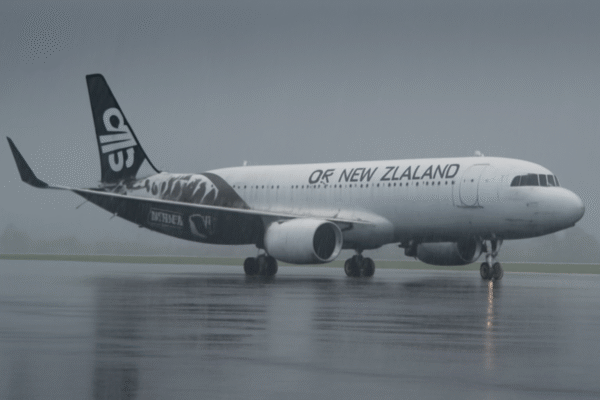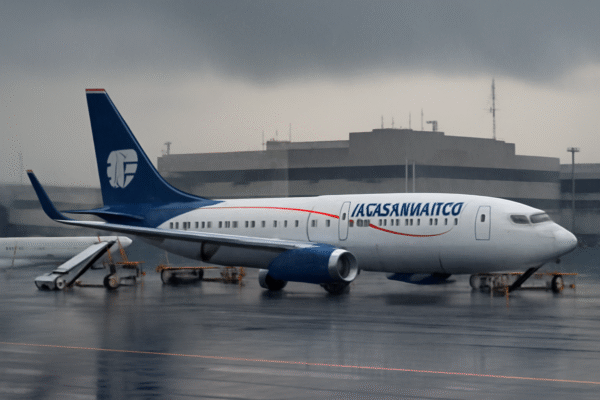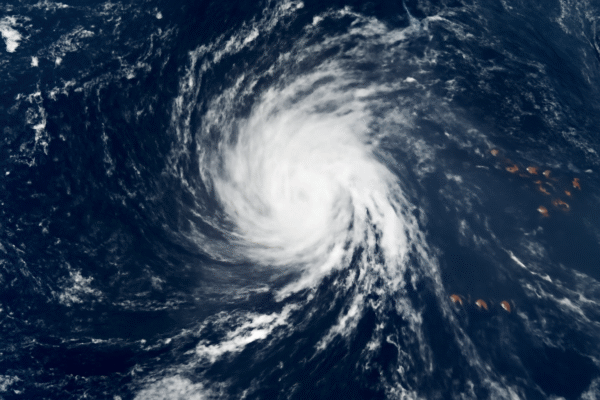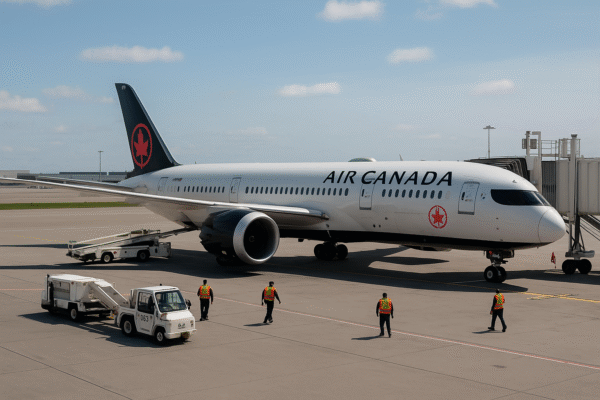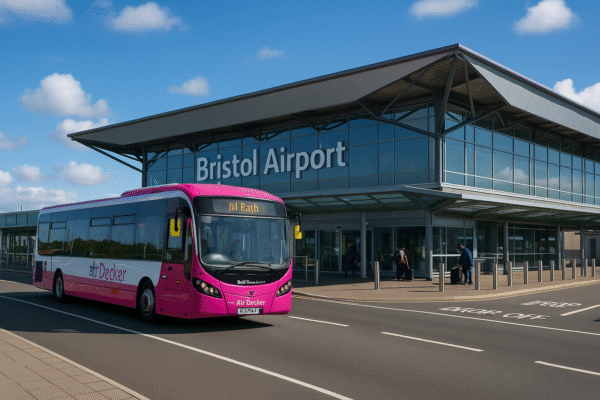Canada’s vibrant summer tourism season is facing its most serious challenge in over a decade as Air Canada prepares for a large-scale operational shutdown. Following a 72-hour strike notice issued on August 13, 2025, by the Canadian Union of Public Employees (CUPE), the airline will begin canceling thousands of flights from August 14. By August 16, most domestic and international routes could be grounded, affecting an estimated 130,000 passengers daily.
This disruption comes during one of the busiest travel windows of the year, when Canada’s national parks, heritage cities, and cultural festivals attract millions of domestic and foreign visitors. Popular destinations such as the Rocky Mountains in Alberta, Quebec’s historic Old City, and the maritime provinces rely heavily on Air Canada’s extensive network to bring in seasonal visitors.
Tourism Hotspots at Risk
Air Canada’s cancellations will hit major hubs like Toronto Pearson International Airport, Vancouver International Airport, and Montreal-Trudeau International Airport hardest. These airports act as gateways for tourists visiting iconic Canadian attractions:
- British Columbia: Vancouver’s cruise tourism season, trips to Whistler, and island getaways in Victoria.
- Alberta: Banff and Jasper National Parks, which draw nature lovers and hikers from across the globe.
- Quebec: Montreal’s cultural festivals and Quebec City’s historic landmarks.
- Atlantic Canada: Prince Edward Island’s beaches and Nova Scotia’s Cabot Trail scenic drives.
The strike’s impact on these destinations could result in reduced hotel occupancy, canceled tour packages, and a significant drop in visitor spending.
Economic Ripple Effect on Canadian Tourism
Tourism is a cornerstone of Canada’s economy, with the industry projected to contribute CAD 183 billion in 2025. According to recent Statistics Canada reports, international arrivals were already showing signs of strain, with a 15.6% decline in July 2025 compared to the same month in 2024. A prolonged Air Canada shutdown could deepen these losses.
Small businesses—restaurants, souvenir shops, adventure tour operators, and local transportation providers—are especially vulnerable. In rural and remote regions, where Air Canada serves as the primary air connection, the loss of passenger traffic could cut deeply into seasonal revenue.
Flight Disruptions and Travel Alternatives
The phased suspension strategy means cancellations will start gradually from August 14, allowing travelers to adjust plans. However, given the high demand of the summer season, seats on alternative carriers such as WestJet, Porter Airlines, and international partners are limited.
Air Canada is offering full refunds and flexible rebooking policies, but travelers are being urged to:
- Check flight status daily via the airline’s website or app.
- Rebook early with alternative airlines to avoid price spikes.
- Consider rail or bus options for domestic travel, especially along the Quebec City–Montreal–Toronto corridor.
Government Intervention on the Table
Air Canada has formally requested government intervention under Section 107 of the Canada Labour Code, seeking binding arbitration to avoid a complete shutdown. While the federal government has previously stepped in during transport sector disputes, CUPE has rejected arbitration in favor of direct negotiations. The outcome of these talks could determine whether Canada avoids one of the most disruptive labor actions in its aviation history.
Impact on International Connectivity
Air Canada’s global network connects Canada to over 180 destinations worldwide, including key markets in Europe, Asia, and South America. The suspension of routes such as Toronto–London Heathrow, Vancouver–Tokyo, and Montreal–Paris could disrupt not only tourism but also corporate travel, conferences, and global trade connections.
Inbound tourism from the U.S., which typically peaks in late summer, could also suffer, particularly for travelers attending Canadian festivals, sports events, and cruises.
A Challenge to Canada’s Travel Brand
Beyond the immediate financial damage, this labor dispute poses reputational risks. Canada’s positioning as a reliable and accessible destination depends on strong air connectivity. Extended flight cancellations during a peak tourism period may push international travelers toward alternative destinations, affecting long-term tourism recovery from the pandemic years.
Looking Ahead
The coming days will be decisive for Canada’s tourism industry. If the strike proceeds, travelers and tourism businesses will need to adapt quickly. The resilience of Canada’s tourism sector will be tested—not only in its ability to absorb this shock but also in how swiftly it can restore confidence among visitors.
While Air Canada’s refund and rebooking measures aim to reduce disruption, the broader challenge remains: ensuring that Canada’s tourism brand emerges from this crisis with its global appeal intact. The government, airline, and union will need to act swiftly to safeguard both the economy and the country’s image as a world-class travel destination.
For more travel news like this, keep reading Global Travel Wire





